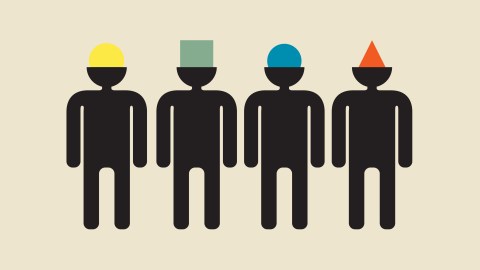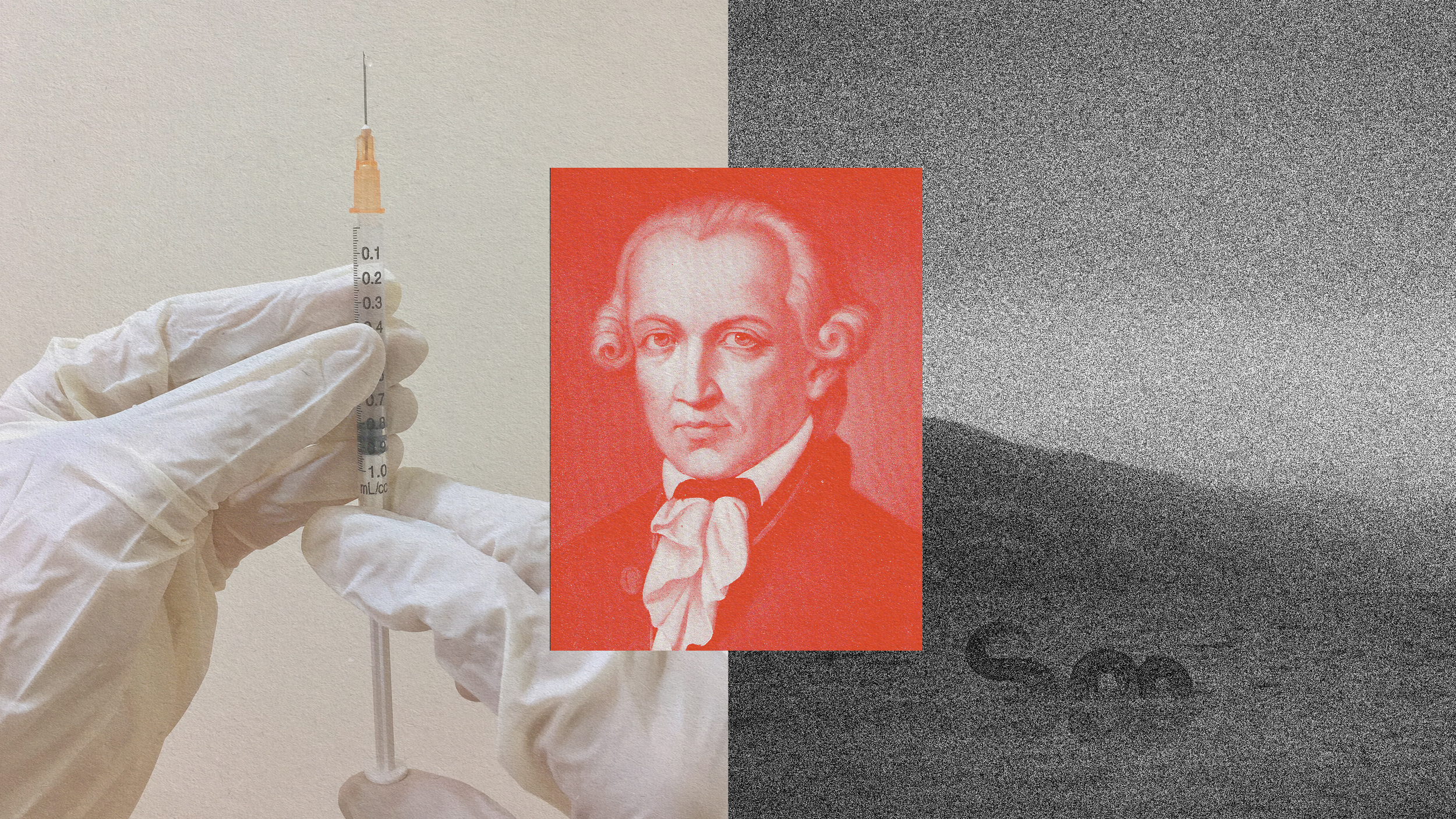Are You Envious or Trusting? Game Theory Can Tell You.

According to a new study, 30% of you reading this sentence have jealousy issues.
Published in the journal Science Advances, the study concludes that 90% of the entire human population can be classified into four basic personality types: Optimistic, Pessimistic, Trusting and Envious. Envious is the most common, making up 30% of the total population. Optimists, Pessimists, and Trusters are all 20% each. The remaining 10% of people are combinations of all four types.
Credit: Laurie Vázquez/Big Think
How the heck did the study come up with those numbers? As Science Daily reports, researchers from Universidad Carlos III de Madrid gathered 541 random volunteers and ran simulations with them using game theory. As we’ve told you before, game theory is a mathematical modeling system for human behavior. Game theory tests how people interact with each other when they have to work together to solve a problem. That’s where the four personality types in the chart above come into play: people are either optimistic, pessimistic, trusting, or envious when forced to make decisions with strangers. For more on game theory, check out Yale Professor Barry Nalebuff’s breakdown:
Using that idea, the researchers paired the volunteers off in random combinations to play several rounds of four games: Prisoner’s Dilemma, Stag Hunt, Snowdrift, and the Harmony Game. All games force players to choose between cooperating or betraying the partner they’re paired with. Cooperation was rewarded with lottery tickets. All games had varying levels of risk and reward for each player, with Snowdrift posing the harshest penalties for betrayal and the Harmony Game posing the least. “These [sic] pairs change, not only in each round, but also each time the game changes. So, the best option could [sic] be to cooperate or, on the other hand, to oppose or betray,” study author Anxo Sánchez explained in a press release.
What the researchers discovered over the course of playing these games was that the volunteers were not making rational choices — meaning, they didn’t always choose the option that was in their best interest. Rather, volunteers chose to either cooperate or betray their partner in each round of each game because of their personal beliefs rather than any incentive within the game itself. The study explains:
There is a group that mostly cooperates in HG, a second group that cooperates in both HG and SG, and a third one that cooperates in both HG and SH. Players in the fourth group cooperate in all games, and finally, we find a small group who seems to randomly cooperate almost everywhere, with a probability of approximately 0.5.
Check out the chart below for a breakdown of these results by game (HG = Harmony Game; SG = Snowdrift Games; SH = Stag Hunt; PD = Prisoner’s Dilemma):
“For every cluster, a column represents a player belonging to his or her corresponding cluster, whereas the four rows indicate the four average cooperation values.” Credit: Science Advances
The results are surprising, and not only because of how cooperation decisions were made. The biggest surprise of this study was that these personality types emerged organically from the data. The volunteers naturally created the Optimist, Pessimist, Trusting, Envious personalities through their interactions. The researchers simply identified and labelled them. “By analyzing our data with an unsupervised clustering algorithm, we find that all the subjects conform, with a large degree of consistency, to a limited number of behavioral phenotypes (envious, optimist, pessimist, and trustful), with only a small fraction of undefined subjects,” the study authors explain.
“The results go against certain theories,” adds Yamir Moreno, a senior researcher at Universidad de Zaragoza, in the press release. “The one which states that humans act purely rationally for example, and, therefore, they should be taken into consideration in redesigning social and economic policies, as well as those involved in cooperation. [This study is] important because [it] improves existing theories on human behavior by giving them an experimental base.” That’s new. And that means that math can predict our personalities – to an extent.
Striking as these conclusions are, take them with a grain of salt. We aren’t just the sum of our interactions with others; we’re also who we present ourselves to be. You are the choices you make on your own, as University of Texas psychology Sam Gosling explains:
Keep that in mind the next time you play a game.





